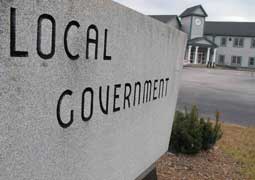
A total collapse in service delivery led the communities to go on extended service delivery protests, which culminated in the provincial government instituting Section 139 (1)(b) of the Constitution. The Select Committee on Cooperative Governance and Traditional Affairs has been conducting an oversight visit in the province to assess if the committee must recommend to the National Council of Provinces to accede or reject the intervention, as per Section 139 (2)(c) of the Constitution.
“Our preliminary assessment is that there is a crisis at municipal level in the North West, with some being technically insolvent, meaning they are unable to deliver much-needed basic services to the people,” said Mr China Dodovu, the Chairperson of the committee.
Despite this, the committee decried the lawlessness that pervaded the municipalities during these protests. The committee said acts of vandalism, threats to councillors, burning of infrastructure and threatening administrators deployed by the provincial executive, among many other acts, undermine a genuine grievance about the lack of service delivery.
In Naledi Local Municipality, administrator Mr Paul Maseko informed the committee that the municipality was on its knees and his preoccupation now was to stabilise it and get it working before considering other things. “We have a 67% vacancy rate for senior management level, and as we speak the Chief Financial Officer resigned two days ago because he has received a better offer somewhere. So that adds to many of the challenges we face,” Mr Maseko said.
Things are so bad that the municipality’s only vehicle used for refuse removal is now broken down and the municipality can’t afford to pay the mechanic to fix it. In addition, Eskom has been threatening to switch off the lights due to the R201 million debt the municipality owes to the utility. “I am told a former municipal manager decided not to pay Eskom purely on the basis of the utility being a state entity. We just paid them R25 million from the little money we could put together,” Mr Maseko emphasised. A majority of stakeholders in the municipality agreed that there was a need for the intervention.
Meanwhile, in Ratlou Municipality, the former acting municipal manager and some political parties have taken the provincial government and the administrator to court to oppose the intervention. Administrator Ms Neo Motsatsi-kalil said things got so bad that, during the three-week protest, armed members of the community forced workers within the municipality not to work. The administrator attributes the municipality’s troubles to non-compliance with supply chain management prescripts, the extended suspension of the municipal manager despite court orders to reinstate them, non-expenditure of the Municipal Infrastructure Grant, which has led to a loss of R10 million, and ever-increasing unauthorised, irregular and fruitless expenditure.
Despite these challenges, the committee has called on the staff of the affected municipalities to find ways of regaining the work ethic and commitment necessary to ensure service delivery. To this effect, the committee is appreciative of the efforts by the administrators within the affected municipalities to re-establish labour forums with unions aimed at strengthening relations between employer and employees that will act as a basis for collaborative effort to ensure efficient service delivery.
Malatswa Molepo
29 August 2019

